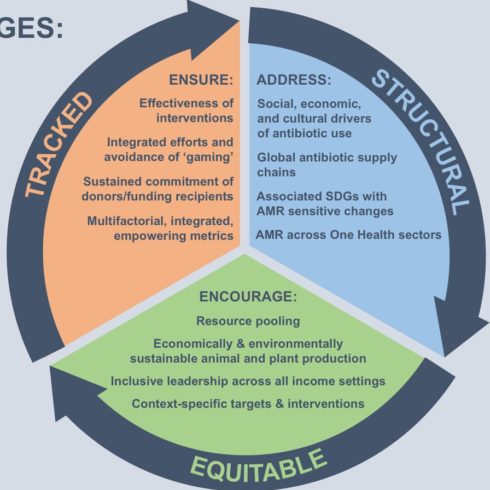Setting the Standard:
Multidisciplinary hallmarks for structural, equitable and tracked antibiotic policy
Kirchelle et al.
2025

Abstract
There is increasing concern globally about the enormity of the threats posed by antimicrobial resistance (AMR) to human, animal, plant and environmental health. A proliferation of international, national and institutional reports on the problems posed by AMR and the need for antibiotic stewardship have galvanised attention on the global stage. However, the AMR community increasingly laments a lack of action, often identified as an ‘implementation gap’. At a policy level, the design of internationally salient solutions that are able to address AMR’s interconnected biological and social (historical, political, economic and cultural) dimensions is not straightforward. This multidisciplinary paper responds by asking two basic questions: (A) Is a universal approach to AMR policy and antibiotic stewardship possible? (B) If yes, what hallmarks characterise ‘good’ antibiotic policy? Our multistage analysis revealed four central challenges facing current international antibiotic policy: metrics, prioritisation, implementation and inequality. In response to this diagnosis, we propose three hallmarks that can support robust international antibiotic policy. Emerging hallmarks for good antibiotic policies are: Structural, Equitable and Tracked. We describe these hallmarks and propose their consideration should aid the design and evaluation of international antibiotic policies with maximal benefit at both local and international scales.
View Publication > Share
Share






Commentary
The latest commentary on the use of antimicrobials in society.